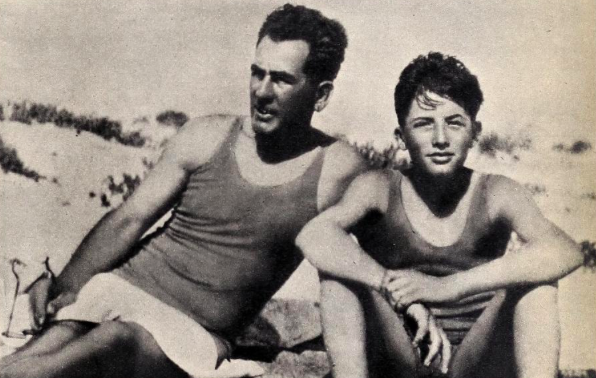|
Gainesboro, Tennessee
Gainesboro () is a town in and the county seat of Jackson County, Tennessee, United States. The population was 920 at the 2020 census. Gainesboro is part of the Cookeville, Tennessee Micropolitan Statistical Area. History The Gainesboro vicinity was a popular destination for long hunters as early as the 1770s, as natural salt licks drew rich game to the area. In the 1790s, Avery's Trace passed nearby, with travellers along the road lodging at Fort Blount about 10 miles to the west. Gainesboro was named after U.S. Army Brevet Major General Edmund P. Gaines (1777–1849). It has been the seat of Jackson County since 1820.The Federal Writers' Project, ''The WPA Guide to Tennessee'' (Knoxville, Tenn.: University of Tennessee Press, 1986), 445. The 1970 John Frankenheimer Movie ''I Walk the Line'' starring Gregory Peck and featuring Johnny Cash's song ''I Walk the Line'' was filmed in Gainesboro. Geography According to the United States Census Bureau, Gainesboro is loc ... [...More Info...] [...Related Items...] OR: [Wikipedia] [Google] [Baidu] |
Town
A town is a type of a human settlement, generally larger than a village but smaller than a city. The criteria for distinguishing a town vary globally, often depending on factors such as population size, economic character, administrative status, or historical significance. In some regions, towns are formally defined by legal charters or government designations, while in others, the term is used informally. Towns typically feature centralized services, infrastructure, and governance, such as municipal authorities, and serve as hubs for commerce, education, and cultural activities within their regions. The concept of a town varies culturally and legally. For example, in the United Kingdom, a town may historically derive its status from a market town designation or City status in the United Kingdom, royal charter, while in the United States, the term is often loosely applied to incorporated municipality, municipalities. In some countries, such as Australia and Canada, distinction ... [...More Info...] [...Related Items...] OR: [Wikipedia] [Google] [Baidu] |
Cookeville Micropolitan Area
The Cookeville Micropolitan Statistical Area as defined by the United States Census Bureau, is an area consisting of four counties in Middle Tennessee, anchored by the city of Cookeville. As of the 2020 census, the Cookeville Micropolitan Area had a population of 145,479. Counties *Jackson * Overton * Putnam *White Communities Places with more than 30,000 inhabitants * Cookeville (Principal city) Places with 1,000 to 10,000 inhabitants * Algood * Baxter * Dodson Branch * Livingston *Monterey *Sparta Places with fewer than 1,000 inhabitants *Gainesboro, Tennessee *Doyle, Tennessee Demographics At the census of 2000, there were 93,417 people, 37,441 households, and 25,469 families residing within the Cookeville Micropolitan Area. The racial makeup of the Cookeville Micropolitan Area was 95.88% White, 1.22% African American, 0.24% Native American, 0.65% Asian, 0.07% Pacific Islander, 1.13% from other races, and 0.81% from two or more races. Hispanic or Latino of any race w ... [...More Info...] [...Related Items...] OR: [Wikipedia] [Google] [Baidu] |
Non-Hispanic Or Latino African Americans
African Americans, also known as Black Americans and formerly also called Afro-Americans, are an American racial and ethnic group that consists of Americans who have total or partial ancestry from any of the Black racial groups of Africa. African Americans constitute the second largest ethno-racial group in the U.S. after White Americans. The term "African American" generally denotes descendants of Africans enslaved in the United States. In 2023, an estimated 48.3 million people self-identified as Black, making up 14.4% of the country’s population. This marks a 33% increase since 2000, when there were 36.2 million Black people living in the U.S. African-American history began in the 16th century, with Africans being sold to European slave traders and transported across the Atlantic to the Western Hemisphere. They were sold as slaves to European colonists and put to work on plantations, particularly in the southern colonies. A few were able to achieve freedom through ... [...More Info...] [...Related Items...] OR: [Wikipedia] [Google] [Baidu] |
Non-Hispanic Or Latino Whites
Non-Hispanic Whites, also referred to as White Anglo Americans or Non-Latino Whites, are White Americans who are classified by the United States census as "White people, White" and not of White Hispanic and Latino Americans, Hispanic or Latino origin. According to annual estimates from the United States Census Bureau, as of July 1, 2023, non-Hispanic Whites comprised approximately 58.4% of the Demographics of the United States, U.S. population. Although non-Hispanic Whites remain the largest single Race and ethnicity in the United States, racial and ethnic group in the United States and still constitute a majority of the population, their share has declined significantly over the past eight decades. In 1940 United States census, 1940, they comprised approximately 89.8% of the total population, illustrating the extent of the demographic transformation that has occurred since the mid-20th century. This decline has been attributed to factors such as lower Birth rate, birth rates am ... [...More Info...] [...Related Items...] OR: [Wikipedia] [Google] [Baidu] |
I Walk The Line
"I Walk the Line" is a song written and recorded in 1956 by Johnny Cash. After moderate chart success, it soon became Cash's first #1 hit on the ''Billboard'' country chart, and eventually crossed over to the pop charts, reaching #19 on the Billboard "Top 100" (later renamed "Hot 100"). The song remained on the charts for over 43 weeks, and sold over two million copies. It has also been used on many LPs released from Sun Records, such as '' Johnny Cash with His Hot and Blue Guitar!'', '' Johnny Cash Sings the Songs That Made Him Famous'', and '' Johnny Cash Sings Hank Williams''. It was the title song for a 1970 film starring Gregory Peck and a 2005 biopic of Cash starring Joaquin Phoenix. The song captures Johnny Cash's "boom-chicka-boom" sound by Cash putting a dollar bill in the neck of his guitar. Background of the song The unique chord progression for "I Walk the Line" was inspired by the backwards playback of guitar runs on Cash's tape recorder while he was stationed ... [...More Info...] [...Related Items...] OR: [Wikipedia] [Google] [Baidu] |
Johnny Cash
John R. Cash (born J. R. Cash; February 26, 1932 – September 12, 2003) was an American singer-songwriter. Most of his music contains themes of sorrow, moral tribulation, and redemption, especially songs from the later stages of his career. He was known for his deep, calm, bass-baritone voice, the distinctive sound of his backing band, the Tennessee Three, that was characterized by its train-like chugging guitar rhythms, a rebelliousness coupled with an increasingly somber and humble demeanor, and his free prison concerts. Cash wore a trademark all-black stage wardrobe, which earned him the Honorific nicknames in popular music, nickname "Man in Black (song), Man in Black". Born to poor cotton farmers in Kingsland, Arkansas, Cash grew up on gospel music and played on a local radio station in high school. He served four years in the United States Air Force, Air Force, much of it in West Germany. After his return to the United States, he rose to fame during the mid-1950s in the ... [...More Info...] [...Related Items...] OR: [Wikipedia] [Google] [Baidu] |
Gregory Peck
Eldred Gregory Peck (April 5, 1916 – June 12, 2003) was an American actor and one of the most popular film stars from the 1940s to the 1970s. In 1999, the American Film Institute named Peck the AFI's 100 Years...100 Stars, 12th-greatest male star of Classic Hollywood Cinema. After studying at the Neighborhood Playhouse with Sanford Meisner, Peck began appearing in stage productions, acting in over 50 plays and three Broadway theatre, Broadway productions. He first gained critical success in ''The Keys of the Kingdom (film), The Keys of the Kingdom'' (1944), a John M. Stahl–directed drama that earned him his first Academy Award nomination. He starred in a series of successful films, including romantic-drama ''The Valley of Decision'' (1944), Alfred Hitchcock's ''Spellbound (1945 film), Spellbound'' (1945), and family film ''The Yearling (1946 film), The Yearling'' (1946). He encountered lukewarm commercial reviews at the end of the 1940s, his performances including ''The Para ... [...More Info...] [...Related Items...] OR: [Wikipedia] [Google] [Baidu] |
I Walk The Line (film)
''I Walk the Line'' is a 1970 American neo noir drama film directed by John Frankenheimer and starring Gregory Peck and Tuesday Weld. It tells the story of Sheriff Henry Tawes (Peck) who develops a relationship with a girl in town, Alma McCain (Weld). The screenplay, written by Alvin Sargent, is an adaptation of Madison Jones' novel ''An Exile''. The ''I Walk the Line'' soundtrack is by Johnny Cash; it features his 1956 hit song of the same name. Plot Henry Tawes is an aging sheriff in the small town of Gainesboro, Tennessee, who is becoming bored with his wife, Ellen, and his life. He encounters the comely Alma McCain, who is far younger than Henry and the oldest daughter of a moonshining family new in the county. Alma makes herself available to Henry, a seduction supported by her father and brother as protection for their illegal whiskey business. When Tawes discovers the McCain still, after learning that a Federal "revenuer" named Bascomb is in town sniffing around, he ... [...More Info...] [...Related Items...] OR: [Wikipedia] [Google] [Baidu] |
John Frankenheimer
John Michael Frankenheimer (February 19, 1930 – July 6, 2002) was an American film and television director known for social dramas and action/suspense films. Among his credits are ''Birdman of Alcatraz (film), Birdman of Alcatraz'', ''The Manchurian Candidate (1962 film), The Manchurian Candidate'' (both 1962), ''Seven Days in May'', ''The Train (1964 film), The Train'' (both 1964), ''Seconds (1966 film), Seconds'', ''Grand Prix (1966 film), Grand Prix'' (both 1966), ''French Connection II'' (1975), ''Black Sunday (1977 film), Black Sunday'' (1977), ''The Island of Dr. Moreau (1996 film), The Island of Dr. Moreau'' (1996), ''Ronin (film), Ronin'' (1998) and ''Reindeer Games'' (2000). He won four Emmy Awards – three consecutive – in the 1990s for directing the television movies ''Against the Wall (1994 film), Against the Wall'', ''The Burning Season (1994 film), The Burning Season'', ''Andersonville (film), Andersonville'', and ''George Wallace (film), George Walla ... [...More Info...] [...Related Items...] OR: [Wikipedia] [Google] [Baidu] |
Major General (United States)
In the United States Armed Forces, a major general is a two-star rank, two-star general officer in the United States United States Army, Army, United States Marine Corps, Marine Corps, United States Air Force, Air Force, and United States Space Force, Space Force. A major general ranks above a Brigadier general (United States), brigadier general and below a Lieutenant general (United States), lieutenant general. The U.S. uniformed services pay grades, pay grade of major general is O-8. It is equivalent to the rank of Rear admiral (United States)#Rear admiral, rear admiral in the other United States Uniformed services of the United States, uniformed services which use Naval officer ranks, naval ranks. It is abbreviated as MG in the Army, MajGen in the Marine Corps, and in the Air Force and Space Force. Major general is the highest permanent peacetime rank that can be conferred upon a commissioned officer in the uniformed services (except when General of the Army (United States ... [...More Info...] [...Related Items...] OR: [Wikipedia] [Google] [Baidu] |
Brevet (military)
In military terminology, a brevet ( or ) is a warrant which gives commissioned officers a higher military rank as a reward without necessarily conferring the authority and privileges granted by that rank. The promotion would be noted in the officer's title (for example, "Bvt. Maj. Gen. Joshua L. Chamberlain" or "Bvt. Col. Arthur MacArthur"). It is not to be confused with a '' Brevet d'état-major'' in Francophone European military circles, where it is an award, nor should it be confused with temporary commissions. France In France, ''brevet'' is a word with a very broad meaning, which includes every document giving a capacity to a person. For instance, the various military speciality courses, such as military parachutism, are ended by the award of a brevet. The more important brevet in the French military is that of the École de guerre (''lit''. "school of war"), the French Staff College. Between 1870 and 1940, an ''officier breveté'' was a graduate of the ''École ... [...More Info...] [...Related Items...] OR: [Wikipedia] [Google] [Baidu] |
United States Army
The United States Army (USA) is the primary Land warfare, land service branch of the United States Department of Defense. It is designated as the Army of the United States in the United States Constitution.Article II, section 2, clause 1 of the United States Constitution (1789).See alsTitle 10, Subtitle B, Chapter 301, Section 3001 It operates under the authority, direction, and control of the United States Secretary of Defense, United States secretary of defense. It is one of the six armed forces and one of the eight uniformed services of the United States. The Army is the most senior branch in order of precedence amongst the armed services. It has its roots in the Continental Army, formed on 14 June 1775 to fight against the British for independence during the American Revolutionary War (1775–1783). After the Revolutionary War, the Congress of the Confederation created the United States Army on 3 June 1784 to replace the disbanded Continental Army.Library of CongressJournals ... [...More Info...] [...Related Items...] OR: [Wikipedia] [Google] [Baidu] |





